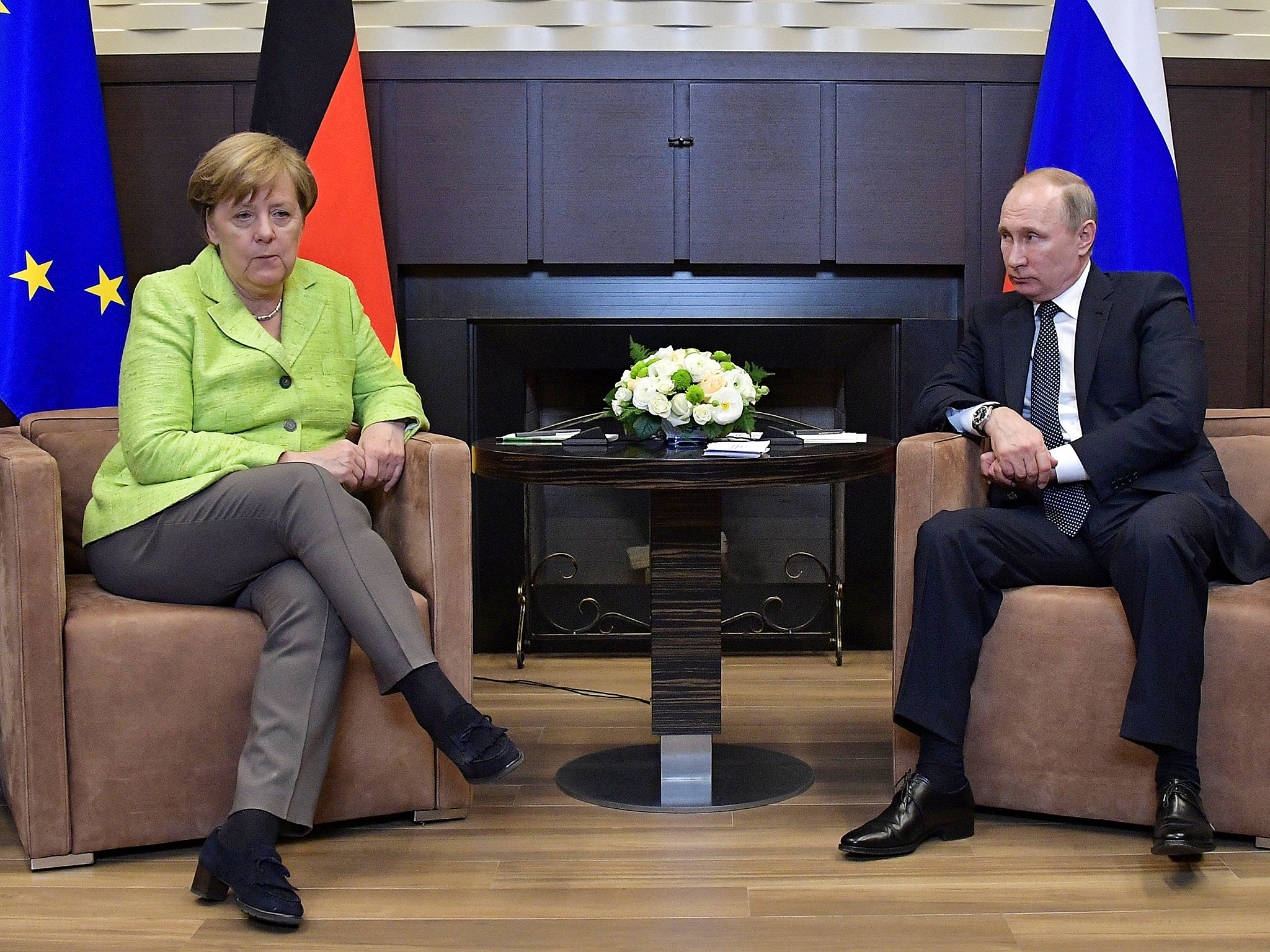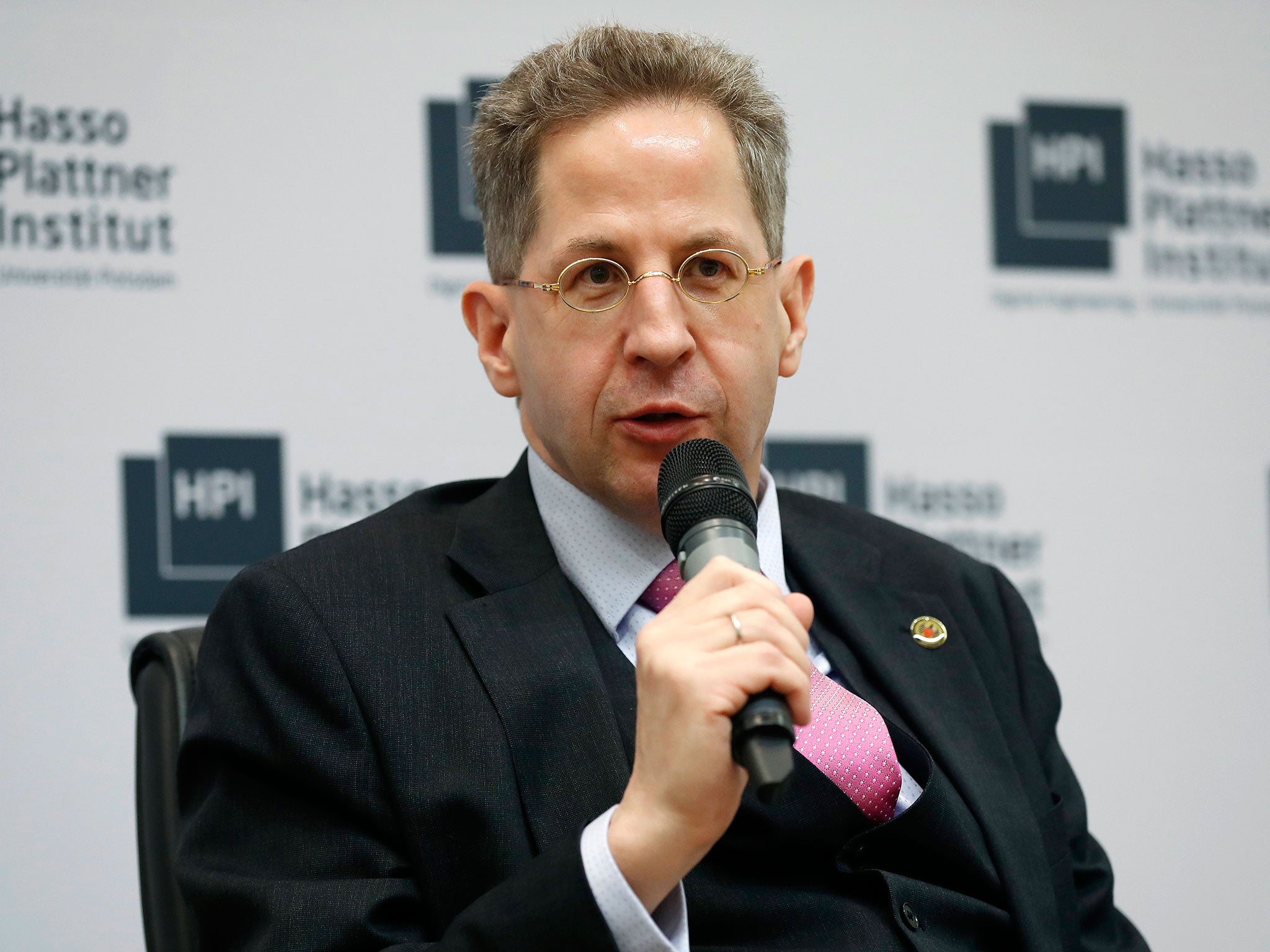German spy chief warns Russia cyber attacks aiming to influence elections
Hans-Georg Maassen warns of 'disinformation' campaign spreading fake news stories

Germany’s domestic intelligence agency expects new cyber attacks targeting politicians and government officials ahead of federal elections.
Hans-Georg Maassen, head of the BfV agency, said spies are keeping a “very close watch” on threats as the country gears up for September’s vote.
“We expect further attacks, and we are keeping a very close watch on the threats,” Mr Maassen told a cyber security conference in Potsdam.
“We are finding increasingly aggressive cyber espionage.”
He said his agency had detected and foiled repeated email phishing attacks directed at Angela Merkel’s conservative CDU/CSU party, and other attempts targeting politicians and institutions.
The Chancellor is bidding for a fourth term in office amid record levels of politically-motivated crime in Germany, where tensions over the refugee crisis, immigration and a string of Isis-linked terror attacks are running high.

“Large amounts of data” were seized during a previous attack on the Bundestag in May 2015, which was blamed on Russian hacking group APT28, and there are fears the information could now be used to influence the vote.
Mr Maassen also warned of a “disinformation” campaign, citing false stories on the rape of a German-Russian girl called Lisa that were spread by Russian media alongside several other prominent incidents of “fake news”.
He also highlighted emails sent to Lithuanian authorities accusing German soldiers deployed to the country of rape, which sparked an investigation finding the alleged incident did not take place.
The email address where they originated disappeared and authorities were attempting to track the culprit through their IP address.
Mr Maassen claimed it would ultimately be up the Kremlin to decide whether cyber attacks would continue, saying German officials were on high alert given recent assaults on the US military by Russian hackers and reports by American intelligence officials on interference in the Presidential election.
“Our counterpart [in Russia] is trying to generate information that can be used for disinformation or for influence operations,” he said.
“Whether they do it or not is a political decision...that I assume will be made in the Kremlin.”
Bruno Kahl, head of Germany’s BND foreign intelligence agency, said there was increasing evidence that a “state actor stands behind cyber attacks”, adding: “For such attacks, state resources are needed.”
Attempts have increased over recent months, he added, calling for intensified cooperation between international intelligence agencies.
Mr Kahl first warned that Germany’s upcoming federal elections could be the target of “disruption” in November, adding: “The perpetrators have an interest in delegitimising the democratic process as such – whomever that later helps.
“I have the impression that the outcome of the American election isn't causing mourning in Russia so far.”
The allegations are among several issues driving worsening relations between Russia and the West, as well as the wars in Syria and Ukraine.
Vladimir Putin dismissed accusations of aiding Mr Trump’s campaign as unproven “rumours” used for internal politics during a tense press conference with Ms Merkel on Tuesday.
“We never interfere in other countries’ politics and we want no one to meddle in ours,” the Russian President said in response to a question from a German journalist.
“Unfortunately, we have seen the opposite happening for years. We have seen attempts to influence political processes in Russia through the so-called NGOs and directly.
“Realising the futility of such efforts, it has never occurred to us to interfere.”
There is also concern over potential meddling in the French presidential election, where Emmanuel Macron and Marine Le Pen will face off in the final vote on Sunday.
Mr Macron has launched legal action over “fake news” stories brought up by his adversary in a television debate that falsely claim he has an offshore bank account in the Bahamas.
The Paris’ prosecutor’s office said no one was named in Mr Macron’s complaint, which has triggered an inquiry into the suspected spread of false stories aimed at influencing the election.
Theresa May has also accused foreign powers of attempting to influence the UK’s snap general election, although her allegations were levelled at the EU itself.
“Britain's negotiating position in Europe has been misrepresented in the continental press,” the Prime Minister said, in a reference to a German newspaper's account of her dinner with the EU Commission chief.
"The European Commission's negotiating stance has hardened. Threats against Britain have been issued by European politicians and officials.
"All of these acts have been deliberately timed to affect the result of the general election that will take place on 8 June."
The European Commission hit back at the claims, with a spokesperson saying it was “too busy” with policy work to make such an attempt.
Russia’s embassy in London reacted gleefully to the row, tweeting a news article with the caption: “Praise God it's not Russia this time."
Join our commenting forum
Join thought-provoking conversations, follow other Independent readers and see their replies
Comments